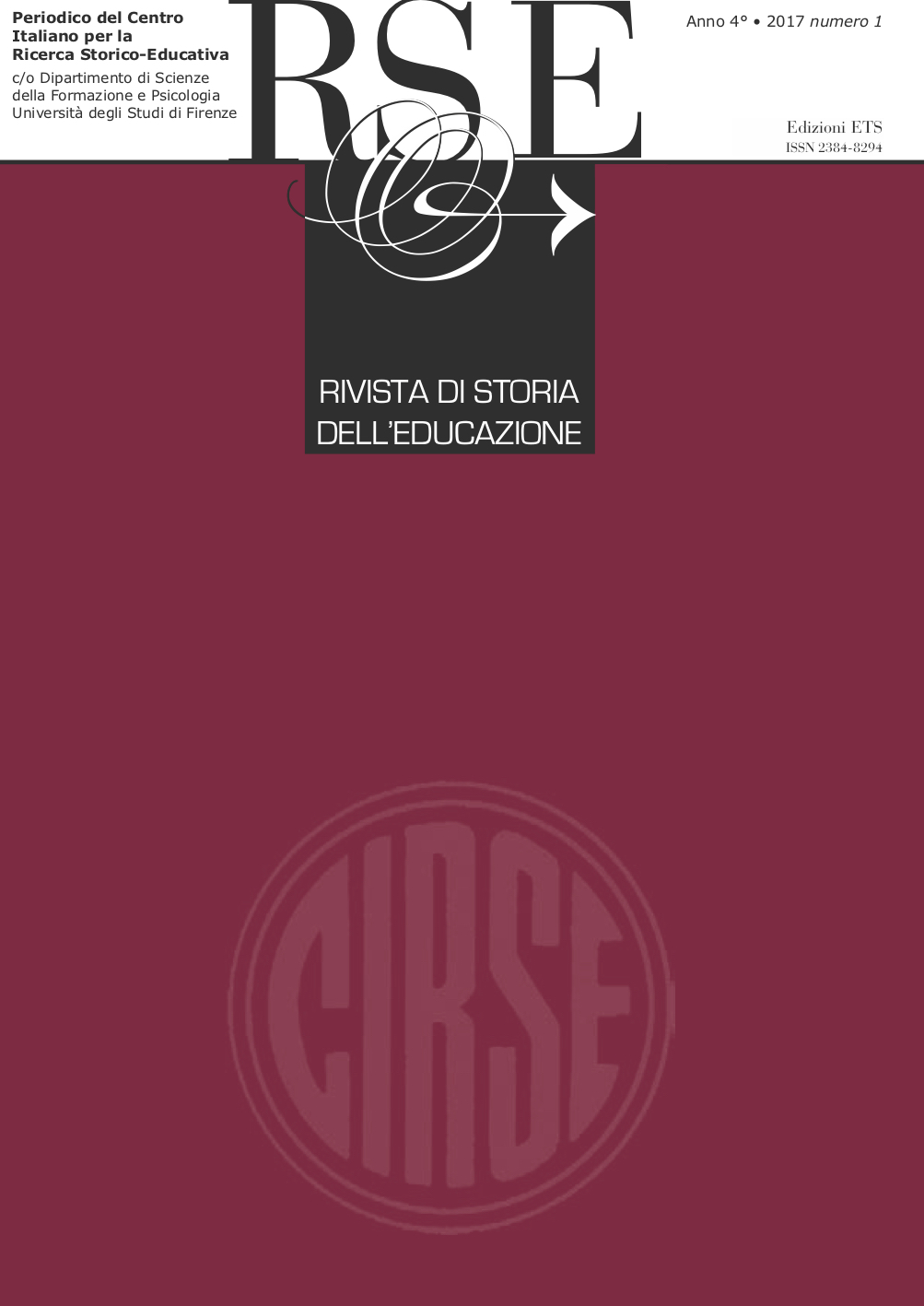Published 2017-11-13
Keywords
- cinema, the Fifties, family education, consumption, economic miracle
How to Cite
Abstract
In this paper, the cinema of the 1950s is investigated as a mean of consuming and as a family education practice. Following the history of Italian cinema in the “longest decade of the short century”, from neorealism to melò to comedy, it became clear that this cinema was coming into the italian’s families, redesigning identities and building new imaginers. The heterogeneous geography of family consumption of cinema reflects the contradictions and the separations of the Italy after the war. Italy was divided between innovation and tradition: between the north and south there were different opinions and attitudes about the films of the 1950s that reflected the changes in the roles and the identities into the Italian family. Cinema interpreted the new needs of the women and of the young people, helping them to build new educational styles and opened their eyes to unprecedented educational horizons.

